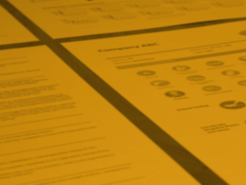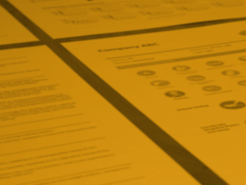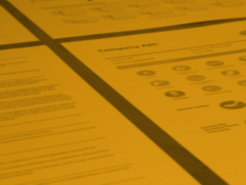Introduction to Transition Bonds
The green bond market has seen major growth in recent years. There is, however, a strong recognition that achieving international climate goals will require significant reduction of GHG emissions from carbon-intensive industrial activities that to date have not been the focus of green finance and for which low-carbon solutions are generally not yet available at scale due to major technological and/or systemic barriers. Those are commonly referred to as transition sectors.
Controversies Research
Sustainalytics’ Controversies Research uses smart technologies to monitor more than 60,000 media sources and 200,000 news items on a daily basis to identify companies involved in ESG-related incidents. Leverages this research to support investment decisions and manage reputational risks.
Overview of Corporates Products and Services
Interested in obtaining an ESG License from Sustainalytics to meet both internal and external business needs? Our ESG Risk Ratings are used by the world's largest institutional investors to help shape and guide their investment strategies when looking for top performing ESG companies.
Global Standards Screening
Sustainalytics’ Global Standards Screening product provides an assessment of a company’s impact on stakeholders and the extent to which a company causes, contributes or is linked to violations of international norms and standards. Download the brochure to learn more about how Sustainalytics identify the Global Sustainability Signatories.
Product Involvement
Sustainalytics' Product Involvement research helps identify companies involved in a range of products, services and business activities for screening purposes. Each activity is accompanied with a concise summary of the way the company is involved in the relevant product or activity.
Feeding the Future
Agriculture is estimated to account for one-quarter of the world’s greenhouse gas (GHG) emissions, 80 percent of deforestation, 70 percent of water use and 78 percent of ocean and freshwater pollution. This engagement theme aims to contribute to a more sustainable trajectory for the future of food.
Thematic Engagement
The purpose of Thematic Engagement is to influence companies to proactively manage specific ESG risks and opportunities, as well as enabling the participating investors to play an active role in addressing material, shared sustainability challenges through raising sector and systemic standards in alignment with the Sustainable Development Goals (SDG) agenda.
Thematic Engagement Bundle
Our Comprehensive Thematic Engagement program combines a set of four thematic engagements in a single package: Climate Transition, Human Capital and the Future of Work, Plastics and the Circular Economy and Tomorrow’s Board. The themes have been selected to give investors the broadest possible coverage of E, S and G topics with exposure to diverse industries and companies.
Plastics - A Material Issue for Investors
The plastic waste issue is currently one of the fastest growing environmental topics on the political and business agenda. Plastic is a vital product to the global economy; however, the way it is being produced and managed is unsustainable, especially at the use and after‐use phases. The carbon footprint and emissions associated with plastic production along with the issue of the environmental and potential health impacts of plastic waste are a matter of growing concern for investors. In light of the environmental, social and financial challenges, the linear “take, make and dispose” approach cannot continue. The alternative is a circular economy approach, which focuses on maximizing resource value, making resource use more efficient and extending product value during use.
South Africa and ESG Risk
A Case Study On November 1, 2019 Moody’s cut its rating outlook for South Africa from “Baa3 stable” to “Baa3 negative,” putting the country’s bonds on the cusp of junk status after several harbingers of a potential downgrade.[i] Earlier this year, the World Bank and the International Monetary Fund cut their 2019 growth forecasts for South Africa to around 0.8%, while the Institute of International Finance warned that the country’s public debt could grow to 95% of Gross Domestic Product (GDP) by 2024.[ii] The other two big credit rating agencies (CRAs) – Fitch and S&P – downgraded South Africa’s credit rating to sub-investment grade back in 2017, citing a deterioration in the country’s public finances.[iii]
A Case for Impact Investing in Public Equities
As awareness around environmental and social issues has grown, so has the number of investors who deliberately seek to allocate capital to create positive social and environmental impact. Impact investing is as old as the sustainable investment industry, with the bulk of strategies to date having been executed through private equity and debt vehicles. However, as a more diversified pool of investors look to adopt impact investing strategies, fueled by the United Nations’ Sustainable Development Goals (SDGs) and the Paris Climate Agreement, a broader set of asset classes are being considered – here enters public equities.
Sustainable Finance and the EU Taxonomy: Developments from the Trilateral Negotiations
As global leaders meet in Madrid for the COP25 amid mounting concern over the international response to climate change, the EU Taxonomy experienced a setback with the UK and France blocking the plans. The new framework, intended to drive financial flows that will accelerate the shift to a low carbon future, will likely become a global standard affecting investors around the world. If enacted, it could cement the EU’s position as the world’s pace setter on climate legislation.

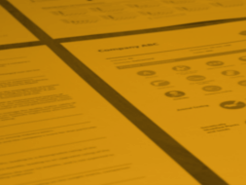

.tmb-small.jpg?Culture=en&sfvrsn=edbba807_2)



.tmb-small.jpg?Culture=en&sfvrsn=655ef212_2)
ee43428f-bcdf-4965-bdf5-d425e447dd71.tmb-small.jpg?Culture=en&sfvrsn=f87532da_2)
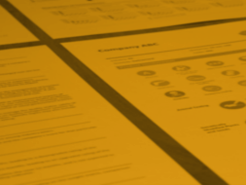

.tmb-thumbnl_rc.png?Culture=en&sfvrsn=ce56d6ce_2)

